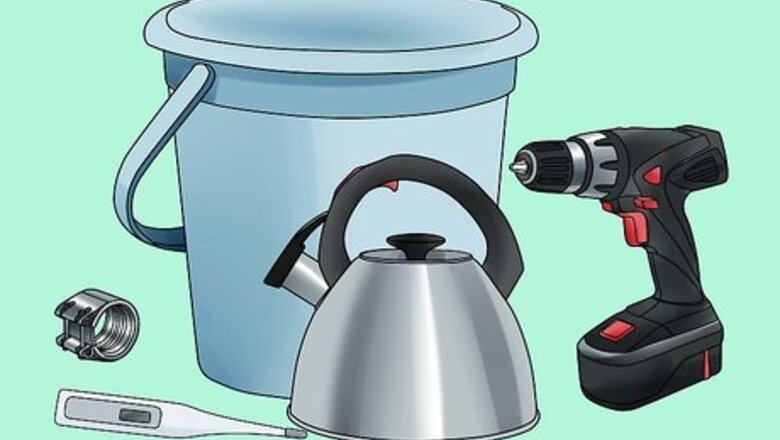
views
Building a Stove Still
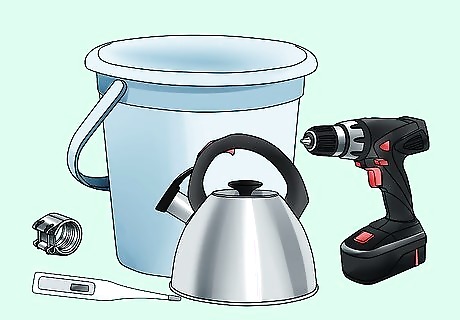
Get your materials. You will need a variety of materials, most of which you can get at your local hardware store. Bending copper tubing is involved, so if you really want to make your life easier, you can get a tool which helps you bend tubes (found in the plumbing department of your local hardware store). The materials you'll really need are: You'll need a kettle or a pressure cooker (preferably copper, or stainless steel, absolutely never aluminum or lead) A cork or rubber stopper which will fit the opening of your kettle or pressure cooker ~8mm copper tubing (amount will depend on set up, 10-20 ft is a good amount) A very large thermos/small watercooler or a plastic bucket (if you're cheap) Tube couplings (maybe) A thermometer A good drill Some silicon or Sugru
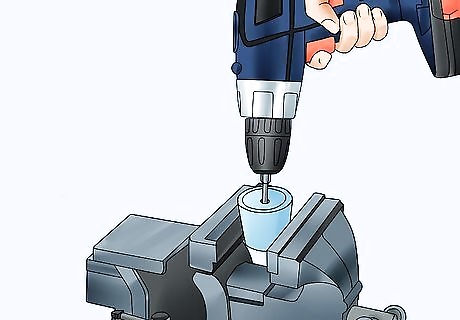
Make the stopper. Drill two holes in your rubber or cork, one for the copper tube and one for the thermometer. These holes should be very slightly smaller than the tube and thermometer, to create a tight fit. Make sure the stopper you use is generally cut to tightly fit the opening of your kettle or pressure cooker.
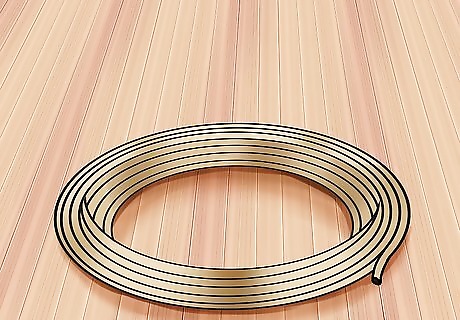
Prepare the copper coil. You will need a copper coil to condense the vapor coming from the pot. Take your 8mm copper tubing and shape it into a coil towards one end. You will need a long straight section and a short (at least 6") straight section on each side of the coil. To bend the coil, you can simply bend it around an object or you can use tools designed for bending tube. The coil should be small enough to fit in the thermos or watercooler, with about 1" of space on either side. These copper coils tend to kink very easily. To avoid this, you can block the tube at one end and fill the tube with salt or sugar (never use sand). Use a funnel and make sure to shake the tube as you fill it to make sure that it fills evenly.
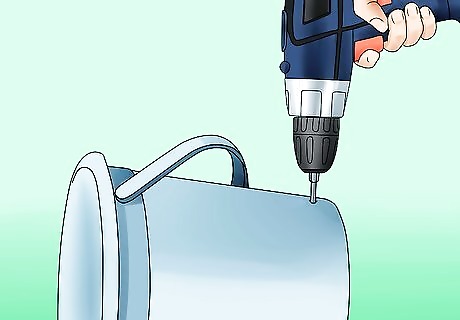
Make your condenser. The watercooler will be your condenser. Drill a hole on the side at the bottom, where the short section of copper tube will come out and deposit your distilled product. Then, drill a hole at the top on the lid. This is where the long section of tube will come out.
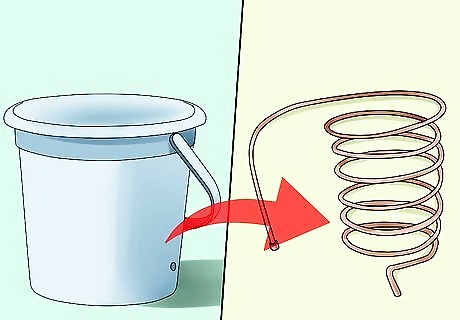
Place the coil in the condenser. Put the copper tubing in the condenser, threading the short end through the hole at the bottom. Once enough of the short end is coming out of the condenser, seal the edges of the hole with silicon or other material, like Sugru or caulk. Then, thread the long straight section of the tube through the hole at the top. If you want it to be easier to get the lid on and off, cut the tube a few inches after it comes out the hole on the top. Have a separate section which spans the distance and goes into the kettle. Connect the two with couplings, which can be undone as necessary. Make sure you unplug the tube if you did so to fill it with salt. You will also want to empty the tube and rinse out the salt before doing this step, although, it can also be done afterwards, with a greater amount of difficulty.
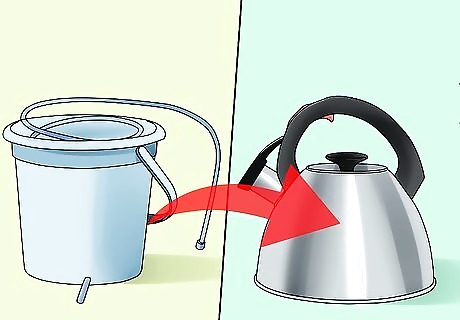
Connect the tube to the pot. Connect the long portion of the tube to the kettle or pressure cooker, by inserting the other end of the tube into the kettle. It should be inserted only enough to reach inside the kettle, not be submerged in the liquid.
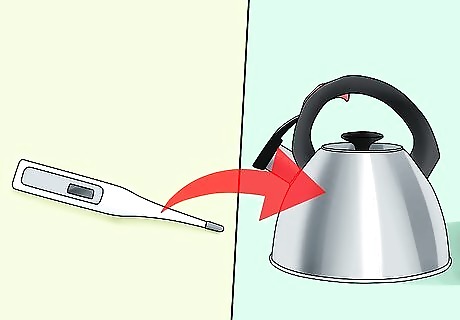
Insert the thermometer. Insert the thermometer into the appropriate hole. Make sure it is place deep enough that the end will be submerged but that it will not touch the bottom or the sides of the pot.
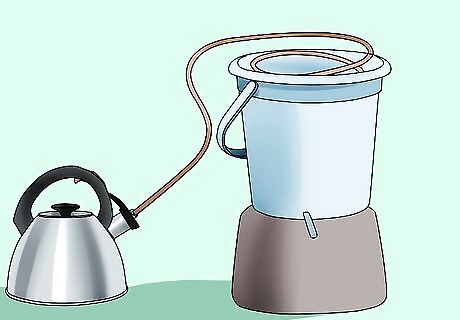
Use the still correctly. Fill the condenser with ice, water, and rock salt. Make sure you use this still on an electric stove, as open flames can cause problems. Do not heat the pot once everything has boiled away, and generally be careful as pressure can build up if you have done something incorrectly. If distilling alcohol, don't drink anything which comes out when the temperature reads below 173 F or you will be treated to the best in beverages that make you blind.
Build a Large Solar Still
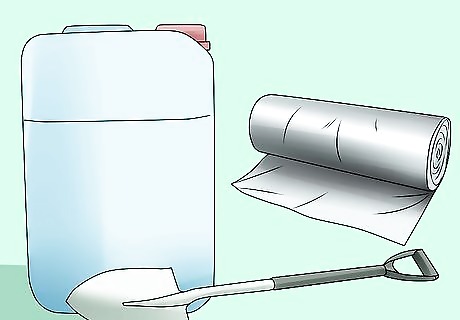
Gather your materials. You will need a container for the distilled water, a plastic sheet and a shovel. You may also want some plastic tubing.
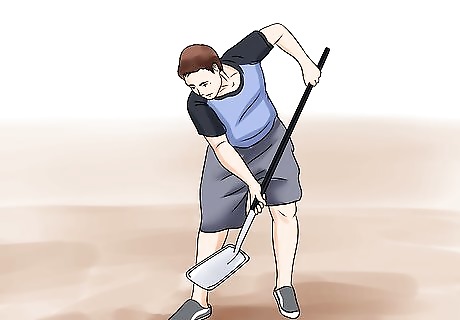
Dig a hole. Dig a hole about as large as the plastic sheet and deep enough so that when you weigh the center of the sheet down, there will be several inches between the bottom of the sheet and the bottom of the hole. This is the sort of still that would be good if you actually have to distill your drinking water. If you get stranded on a desert island, this is your best option.
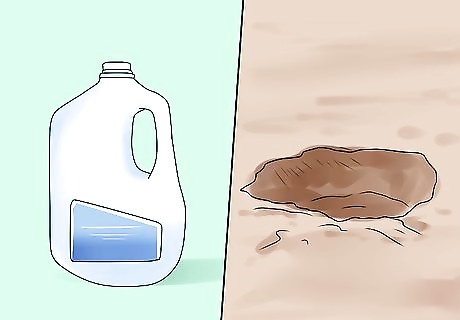
Insert your container. Set your drinking container in the center of the hole and partially bury it to keep it from falling over. Insert one end of the plastic tubing into the container and lay the other end well outside the hole. The goal is to keep the tubing clean and secure so it doesn't fall back into the hole.
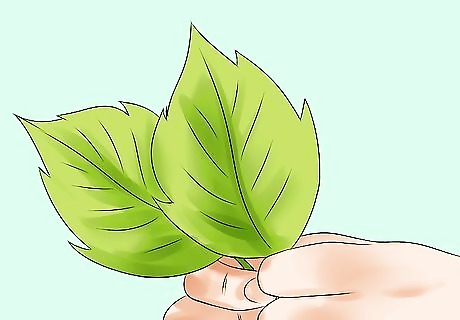
Add plant material. Line the hole with cactus, leaves or other living plant parts if they are available. Placing plants in the hole isn't necessary, but will help your still produce more water.
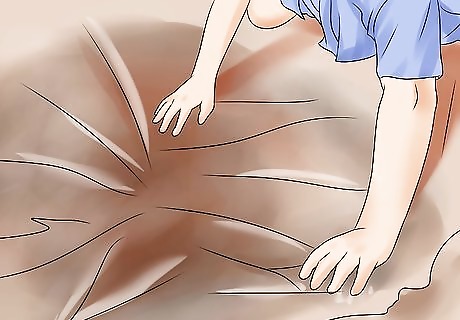
Cover your hole. Cover the hole with a plastic sheet use rocks to weigh down the corners.
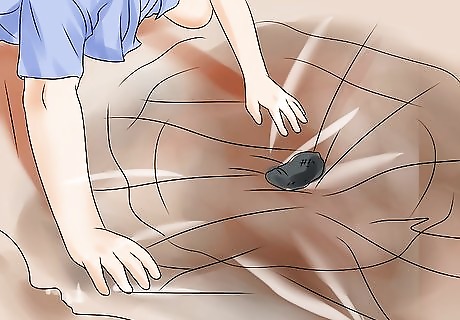
Add a weight. Carefully place a rock in the center of the plastic sheet so it slopes downward at an angle of about 45 degrees; the lowest point should be directly over the container in the hole, but not touching it.
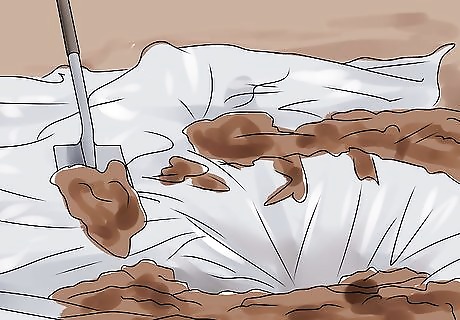
Seal the edges. Cover all edges of the plastic sheet with dirt or sand to keep water vapor from escaping. Take care not to cover the plastic tubing.
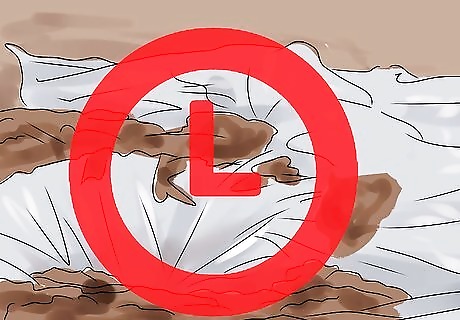
Wait for moisture to collect. Wait two or three hours for moisture to collect on the plastic sheet and run down the sides into the container.
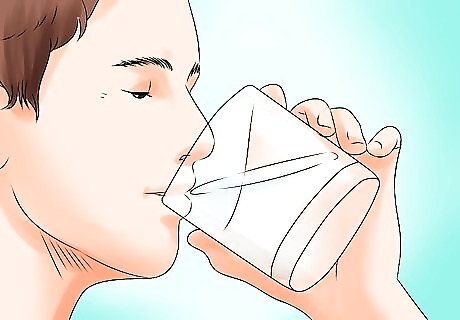
Drink! Drink the water through the plastic tubing. You can disassemble the still and drink directly from the container, but you will have to build the still again when you're through; in the meantime, any water vapor on the sheet will evaporate.
Build a Small Solar Still
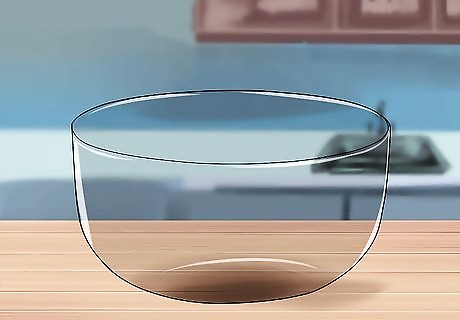
Get a fairly deep, large bowl. This bowl can be plastic, aluminum, or steel, but it should not be made of lead. Put this bowl on a sunny surface outside.
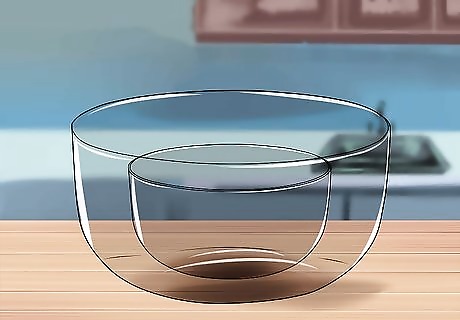
Put a cup or small bowel in the larger bowl. The cup or bowl should be shorter than the edges of the large bowl.
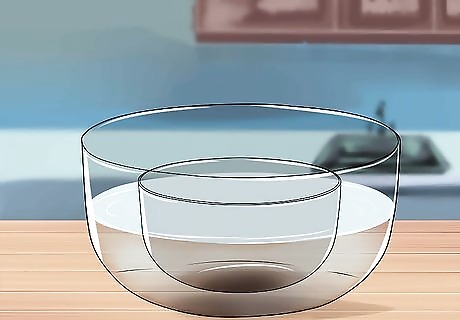
Fill the large bowl with water. Fill the large bowl with water but do not go over the edge of the small bowel or cup.

Cover the bowl with plastic wrap. Cover the bowl very tightly with plastic wrap. Use tape or rubber bands to ensure a tight seal.

Place a weight at the center of the plastic. This should be right over your cup or bowl and should angle the plastic down. Make sure the plastic does not touch the cup, though. A good weight to use would be a rock.

Wait for your water. The sun will evaporate the water in the large bowl, causing the water vapor to rise and condense on the plastic. Since the plastic is weighted and angled, the condensation will roll down into your cup. Mmmm! Clean water!

















Comments
0 comment